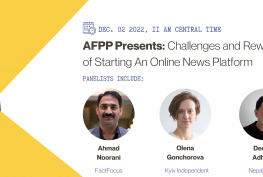FACEBOOK, TWITTER, SKYPE AND WHATSAPP OIL JOURNALISM’S SOCIAL SCIENCE ENGINE
BY HARRY MISIKO
 Just how social was journalism before the advent of social media?
Just how social was journalism before the advent of social media?
With writers sweating to get snippets of information, publishers printing and disseminating news mechanically, and readers trekking for long distances to buy newspapers, wasn’t this more of a physical than social science?
This was my inner monologue over the weekend as I skimmed through feedback on a recent opinion piece I wrote for the Daily Nation, the newspaper I work for in Kenya.
My friends on Facebook lashed out at me for agreeing with Zibwabwe President Robert Mugabe’s statement that corruption has reached endemic levels in the Jubilee government.
“In corruption, Mugabe is the pot that should never call the kettle (Kenya) black,” one of the Facebook commenters hit out. The first five comments tore into my commentary. I felt like deleting the post.
But just before I could hit the delete button, I saw that a couple of people not only shared in my opinion but also reinforced it. They melted away my disappointment. Relieved, I let the post meet its next reader.
But the relief was short-lived. Hardly had I recovered from the attacks when stress started building up regarding my latest assignment at The Washington Post.
Being a Saturday, I was sure I could not reach sources in their offices to comment on my story.
“How will I meet the Tuesday deadline if I start working on Monday?” a thought crossed my mind. Adrenaline welled up in my stomach.
Keen not to disappoint my editor, I took to Facebook and Twitter to hunt for the voices I required for my piece on the safety (or otherwise) of tattoo inks in U.S.
Hope greeted me upon entering that tunnel. And tap by tap on my android phone, the wheels of luck turned in my favor.
A dermatologist in Helsinki, Finland, sent me a research report for the story via Twitter while a tattooist replied to my Facebook message. I also talked to two other sources, whose personal contacts I got on Facebook. The information was as apt as I wanted it.
And there I was! Home and dry. I beat the deadline, thanks to the informal social channels I used.
I spent the evening basking in my little glory as I chatted with friends and family via Whatsapp and Skye. Here, I got news, too— only not fit for the newspaper.
Facebook, Twitter, Whatsapp, Skype among other applications have not only made journalism more social but also made scribes’ work easier.
At The Post, for instance, I have seen writers getting story ideas on social media, using the same channels to research and contact sources, sharing published stories and getting feedback— almost in real time.
The advantage of stories sourced via social media is that they don’t die easily. Their life-cycle is almost endless— from the feedback, reporters get fresh fodder, chew on it, churn out more stories and keep the presses rolling.
While media houses both in Kenya and the U.S. employ social media, they use it quite differently.
At the Nation, for instance, Facebook and Twitter are mostly used to break news and divert traffic to its website (www.nation.co.ke).
At The Post, on the other hand, the focus is on engaging readers and building lasting relationships.
“One million clicks on a story are not enough,” Post Local News Editor Mike Semel told a recent meeting. “Our focus is quality not quantity.”
Additionally, newspapers in the U.S. can quote and entirely base stories on Facebook and Twitter posts from officials. Try that in Kenya at your own peril. Most sources— especially politicians— deny such statements, saying they are not their official positions. “Facebook posts are meant for my friends and I, not the media,” one of them once told me.
Writers are, therefore, advised to confirm such information with the original sources before publishing. Writers at The Post occasionally do this too.
Be as it may, social media is smashing walls and building bridges among media, sources and news consumers every day.
And now that you most likely got this blog through Alfred Friendly’s Facebook or Twitter page, why can’t you be social enough and let me know how you feel about my blog? Thank you.




